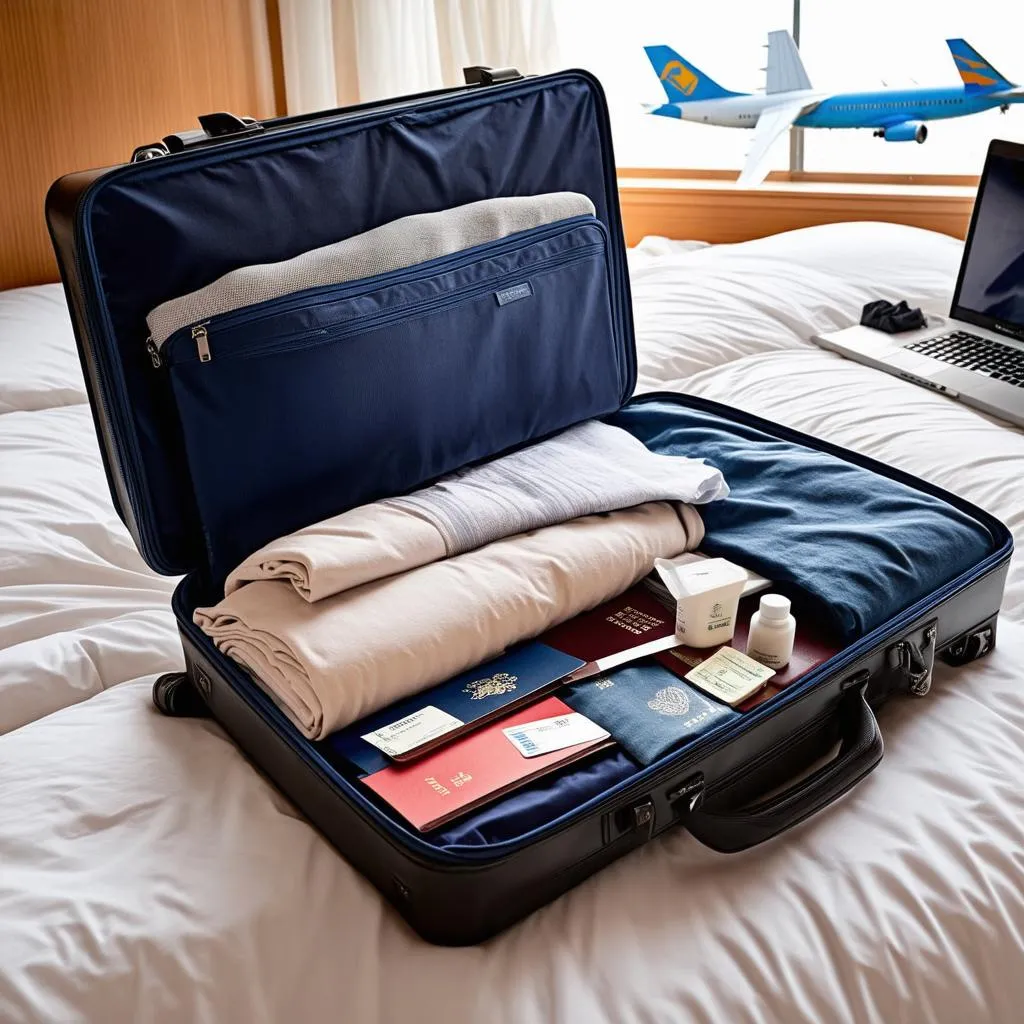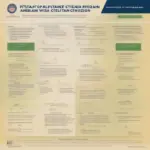Remember that amazing trip you took to the Grand Canyon last year for that work conference? You ended up fronting the costs for flights, accommodation, and even that delicious Navajo taco feast. Thankfully, your company reimbursed you for everything. But now, tax season is looming, and you’re wondering, “Are Reimbursed Travel Expenses Taxable?”
Don’t worry, we’ve got you covered! Navigating the world of travel expense deductions can feel like trekking through a dense jungle, but with a little guidance, you’ll be well on your way to a stress-free tax season.
Understanding the Basics of Reimbursed Travel Expenses
Before we dive into the details, let’s define what we mean by “reimbursed travel expenses.” These are costs related to business trips that your employer covers after you’ve paid for them upfront. This can include:
- Transportation: Plane tickets, train fares, rental car fees, mileage driven for business purposes.
- Accommodation: Hotel rooms, Airbnb stays, etc.
- Meals: Food and beverages consumed during business travel.
- Incidental expenses: Tips, dry cleaning, Wi-Fi charges.
Now, here’s the key question: are these reimbursements considered taxable income?
Generally, reimbursements for business travel expenses are not taxable as long as they meet certain criteria set by the IRS. However, this isn’t always straightforward. The rules can get a little tricky, and there are some important distinctions to be made.
When Reimbursed Travel Expenses are NOT Taxable
The good news is, in many cases, you won’t have to pay taxes on reimbursed travel expenses. This applies when:
- Expenses are directly related to your job: This means the travel was necessary for your work, not for personal leisure. For example, attending a conference for professional development or meeting with clients in a different city.
- Expenses are properly documented: Keep all receipts and invoices organized and readily available. This helps prove the legitimacy of your business expenses if you’re ever audited.
- Reimbursements don’t exceed actual expenses: Your employer should only reimburse you for the exact amount you spent on eligible business travel expenses.
- Your employer uses an accountable plan: An accountable plan is a reimbursement arrangement where you, the employee, submit expense reports, and your employer reimburses only the business-related portion.
When Reimbursed Travel Expenses MIGHT Be Taxable
Here’s where things get a little more complex. In some situations, reimbursed travel expenses can be considered taxable income:
- Reimbursements exceed actual expenses: If your employer reimburses you more than you spent on eligible travel expenses, the excess amount is generally considered taxable income.
- Travel is considered personal: Let’s say you tack on a few extra vacation days to a business trip. While your employer might cover the cost of your flight, the portion of your expenses related to personal time would likely be considered taxable.
- Your employer doesn’t use an accountable plan: If your employer doesn’t have a formal accountable plan in place, reimbursements might be treated as taxable income, regardless of whether they’re related to business expenses.
Planning Your Business Trips: Tips for Smooth Sailing
To avoid any tax-time surprises, here are some practical tips to keep in mind when planning your business trips:
- Familiarize yourself with your company’s travel policy: Each organization has its own guidelines for travel expense reimbursements. Make sure you understand what’s covered, what documentation is required, and how to submit expense reports.
- Keep meticulous records: Save all receipts, invoices, and boarding passes. Organize them in a way that makes it easy to track your expenses and create accurate reports.
- Separate personal and business expenses: While it’s tempting to combine business travel with leisure, this can complicate matters when it comes to expense reporting and potential tax implications. Keep your expenses clearly separated to avoid any confusion.
Frequently Asked Questions
- Can I deduct travel expenses that weren’t reimbursed?
This depends on your employment situation and whether you’re eligible to itemize deductions. It’s best to consult with a tax professional for personalized advice. - What if I received a travel allowance instead of reimbursement?
Travel allowances are treated differently than reimbursements. Essentially, allowances are considered taxable income, but you can deduct eligible business travel expenses. - Does my employer have to withhold taxes from my reimbursements?
If your employer uses an accountable plan and you provide proper documentation, they generally don’t have to withhold taxes from your reimbursements.
Navigating the Travel Expense Maze: Expert Insights
As travel regulations and tax laws can be complex, it’s always wise to consult with a qualified tax professional for personalized guidance. As renowned tax expert, Sarah Miller, author of “The Ultimate Guide to Tax Deductions,” advises, “Don’t be afraid to seek professional help when it comes to navigating your taxes. A little investment in expert advice can save you a lot of headaches and potentially even more money in the long run.”
Remember, understanding the rules surrounding reimbursed travel expenses can help you maximize your deductions and avoid any unexpected tax liabilities. So, plan your trips wisely, keep thorough records, and travel with peace of mind!
 Tax Forms and Calculator
Tax Forms and Calculator
 Business Travel Essentials
Business Travel Essentials
Discover More Travel Insights
Interested in learning more about travel allowances, tax-free stipends, or other travel-related topics? Explore these informative resources on TRAVELCAR.edu.vn:
- Am I Eligible for Tax-Free Travel Stipends?
- What is a Travel Allowance?
- Is Travel Reimbursement Considered Income?
We hope this guide has provided clarity on the often-confusing world of reimbursed travel expenses. Have a question we didn’t answer? Leave a comment below! Safe travels and happy budgeting!
